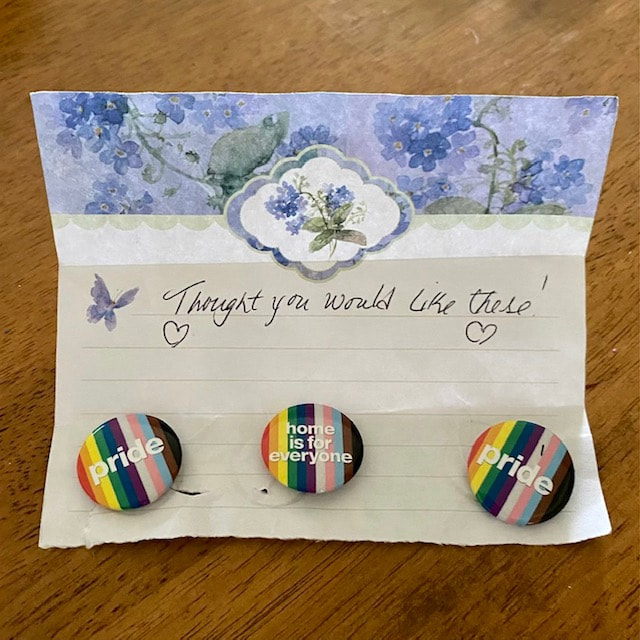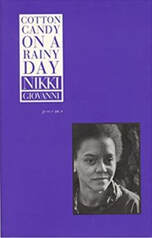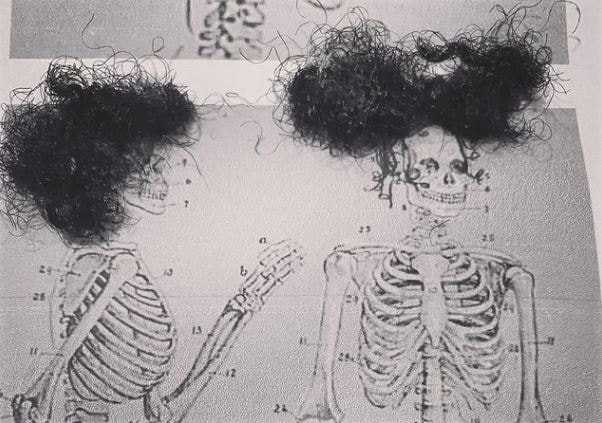|
Location: Provincetown, Mass. (June 2021)
Mandatory photo credit: Tamryn Spruill A pretty label-averse person, I found myself today pondering the (lack of) evolution in the English language when it comes to labels and identifiers. Who or what gets labeled, and why? What is deemed worthy of naming -- remembering, writing and recording into history -- and what is not? More importantly, who gets to decide? Historically, it has been men. And one look at who gets a moniker indicating familial bond in the English language illustrates a wholly heteronormative, patriarchal view: father, mother, sister, brother; aunt, uncle; niece, nephew; grandmother, grandfather; mother-in-law, father-in-law; and sister-in-law, brother-in-law. So, what do you call the mother of your soul mate/partner while not bound to your partner by law? If my partner and I get married, her mother would become my mother-in-law. But what is she to me now? A word does not exist in the English language for this relationship (and so many others). Our society’s struggle with acceptance and inclusion in some ways is caused by (or at least upheld by) the limits of language. Linguistically, we have chosen not to recognize some relationships simply by refusing to, first, acknowledge their existence and, second, to name them. Homosexual relationships have been criminalized or legally delegitimized worldwide. So, if same-sex couples must continue their struggle for recognition and persistently resist attacks meant to erase them, it makes logical (though tragically unacceptable) sense that language would not evolve to include the couples’ respective family members. And heterosexual couples living outside of wedlock face a sliver of this issue; only after saying "I do" does a person's partner's family members take on named significance. My partner's mother is more to me than "the mother of my partner." She is special and that's why I've decided to call her by a tender nickname she has been called by some of the special people in her life: Susu, who sends us mail. This afternoon I reached an arm outside the door and cool rain trickled over my hand. As with all the rainy days, our black, metal mailbox did not protect our parcels from dampness. But left for us today were not the sales papers, letters for prior tenants, papers of personal business and such that usually stuff our box. Inside, a small, cream-colored envelope -- its corners damp with rain. It was addressed to my partner, from my Susu. My partner had not been expecting anything and and had no idea what it could be, so she placed the envelope on the table and opened it carefully. Inside, this radiance on an otherwise dreary, spring day: Three pins of "pride" and one, to be shared, declaring, "home is for everyone."
Three small pins, and now "pride" accompanies crybear on my canvas messenger bag, and pride enlivens the shade of my partner's yellow desk lamp. I'll be adding a magnet to the "home is for everyone" pin and we'll place it on our busy fridge door -- perhaps next to Julia Child teaching Fred Rogers how to cook or Maya Angelou, Malala Yousafzai, Frida Kahlo or any of the other "Little Feminists" sitting spiffy in magnetized cartoon incarnation. And for the rest of my days I'll remember walking into the living room after seeing the pins. There to do yoga with my partner, I dissolved into tears. Just the staggering beauty of not only being seen and accepted, but cherished. Plus, a lingering, dull ache from feeling this for the very first time. One year ago today, at 7:35 p.m. ET, I sent a DM on the bird app to the person who, unbeknownst to me then, is the love of my life. "Hey, Dani! I love that you're Gen X," I wrote in response to a comment she posted to one of my tweets. I wrote it privately so as not to offend Millennials I worked with who, by year's end, would prove themselves worthy of neither my courtesy nor respect. "I'm surrounded by Millennials in my work and it's a relief to encounter another Xer!"
|
Details
subtextualityA blog from Tamryn Spruill archives
March 2023
categories |






 RSS Feed
RSS Feed